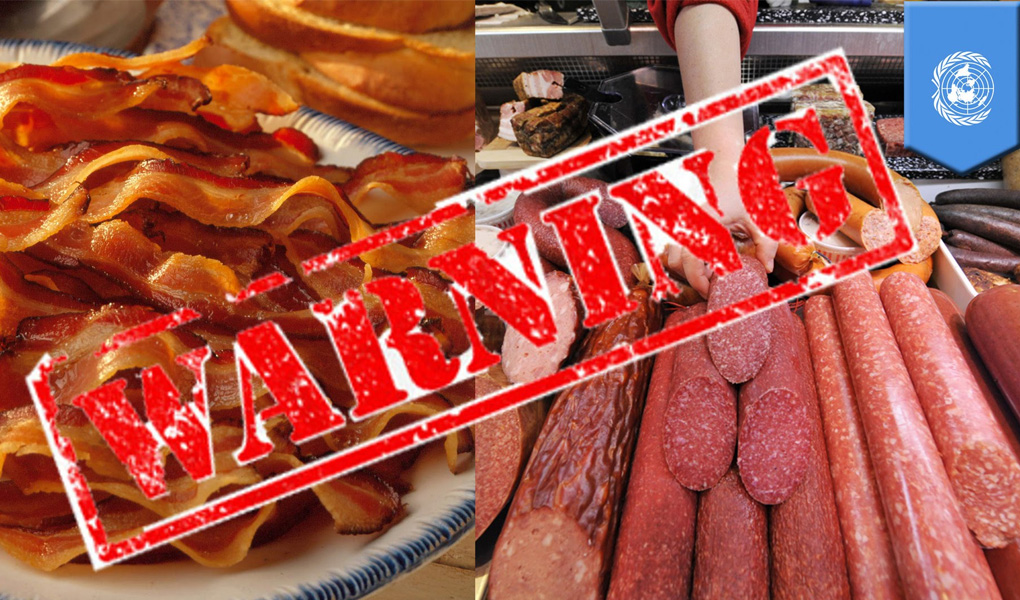This, possibly, will be the most miserable article for every bacon lover to read. WHO has issued a statement that 18% of people who eat processed meat have an increased chance of having colorectal cancer. In fact, processed meat is included on the Group 1 list of IARC (International Agency for Research on Cancer), together with asbestos and tobacco products. In general, they also specified that red meats are probably carcinogenic, even though these have health benefits.
Researchers like Cancer Research UK suggested that this information can be your reference to reduce your processed meat consumption, instead of totally giving up. But it will be an irresponsible move to suggest people to continue eating processed meat when you already know it could get them sick.
What is Processed Meat?
Processed meat is usually composed of pork, beef and chicken meat that have been modified to either extend its shelf life and to improve its taste. Processing methods involve smoking, curing, fermentation or adding preservatives. Processed meat products include bacon, ham, hot dogs, sausages, corned beef, beef jerky, and canned meat.
Sodium nitrite is a well-known ingredient for processed and refrigerated meat products. It has been revealed that meat containing sodium nitrate, when charred or overcooked, become carcinogenic. Even though the unprocessed meat has many benefits, we suggest limiting your intake into smaller portions.
What does the MAP (Meat Advisory Panel) have to say?
A member of the MAP (Meat Advisory Panel) and Emeritus Professor of Neurobiology at Cardiff University, Robert Pickard, said that “What we do know is that avoiding red meat in the diet is not a protective strategy against cancer. The top priorities for cancer prevention remain smoking cessation, maintenance of normal body weight and avoidance of high alcohol intakes.”
Thus, the World Health Organization classified processed meats in the Group 1 list of IARC which was supported by the Meat Advisory Panel saying it is essentially acceptable.
Cancer Research UK’s epidemiologist, Professor Tim Key, said: “Cancer Research UK supports IARC’s decision that there’s strong enough evidence to classify processed meat as a cause of cancer, and red meat as a probable cause of cancer. We have been informed that there is a probable link between red and processed meat to bowel cancer, which is backed by substantial evidence. This decision doesn’t mean you need to stop eating any red and processed meat. But you need to cut down your consumption. You could try having fish for your dinner rather than sausages; or choosing to have bean salad for lunch over a BLT.”
No meat consumption? No worries!
You don’t need to worry when you don’t eat meat. There are foods that are high in nutrients like seaweed, potatoes, blueberries, cocoa and many more. As stated by the Wall Street Journal in 2011, around 80% of Americans who eats meat seldom consumed vegetables at all.
“Studies are confirming the health benefits of meat-free eating. Nowadays, plant-based eating is recognized as not only nutritionally sufficient but also as a way to reduce the risk for many chronic illnesses.” – Harvard Medical School
For example, the American Dietetic Association weighed in with a position paper, concluding that “appropriately planned vegetarian diets, including total vegetarian or vegan diets, are healthy, nutritionally adequate, and may provide health benefits in the prevention and treatment of certain diseases.” — Journal of the American Dietetic Association, July 2009
Your next step
Just to make a difference, would you do this for the benefit of your health and for the environment? This may be a little task for you, but you can do it and try starting out small. Eat red and processed meat moderately and you will realize that eating a plant-based meal is way simpler and easy to prepare. One meat-free meal per day until you get used to not eating it.
We can all do our part to live healthy lifestyles, not just for ourselves, but for all sentient and non-sentient beings on this planet!
Copyright 2022, DoctorFarrah.com


